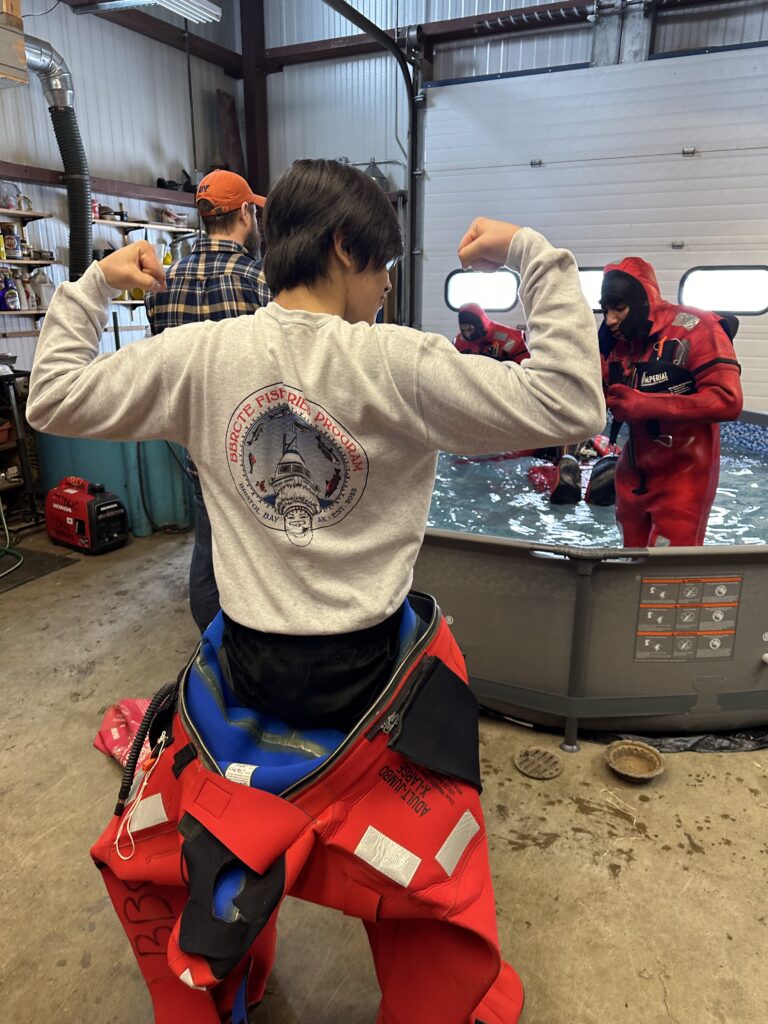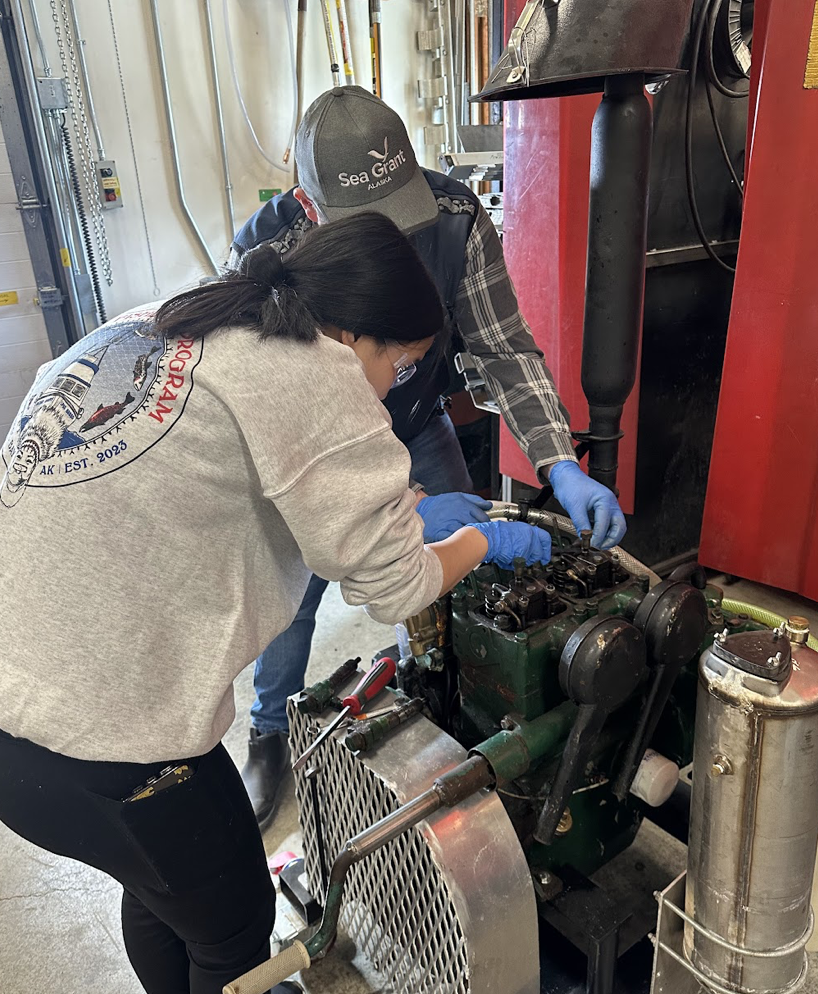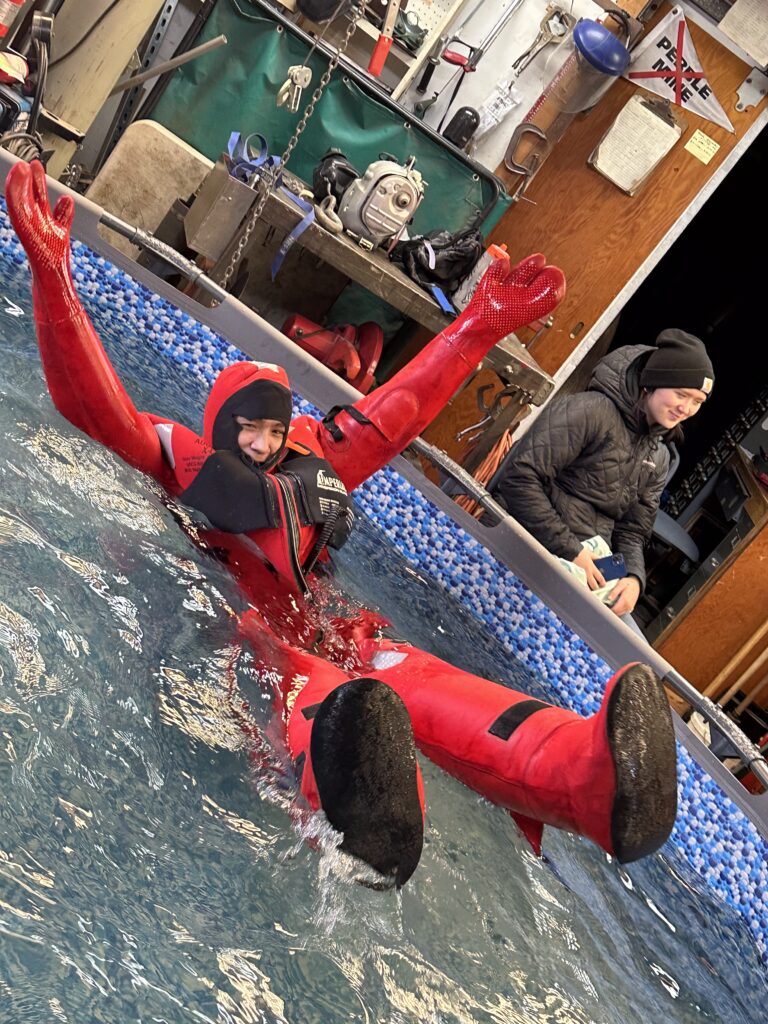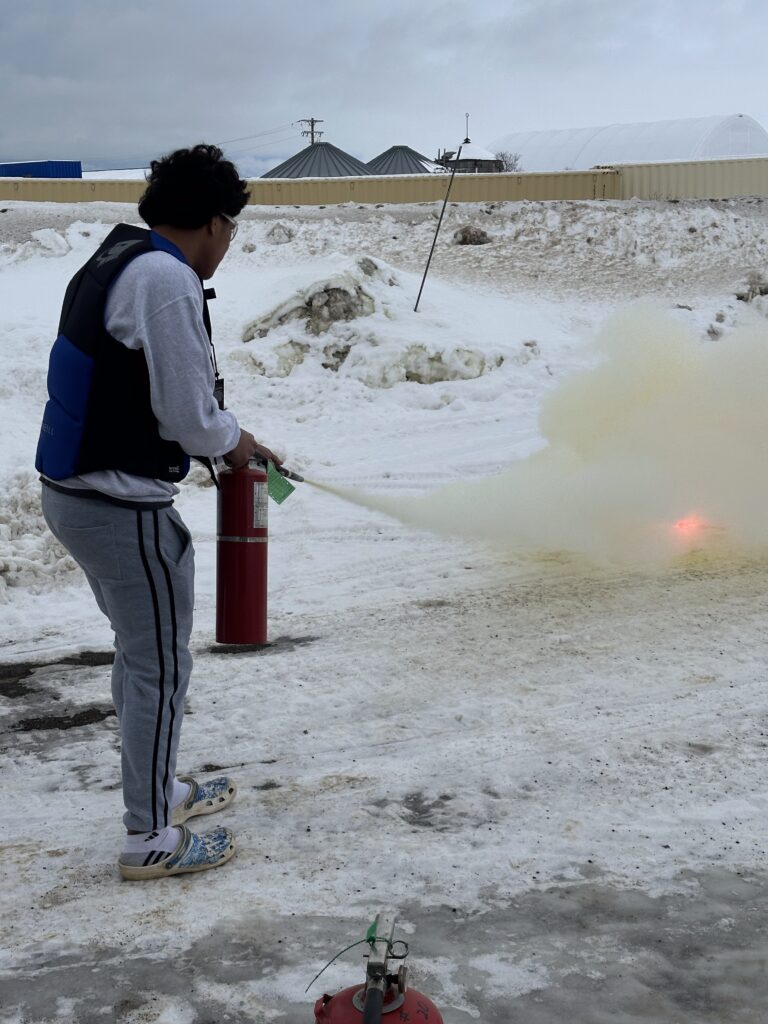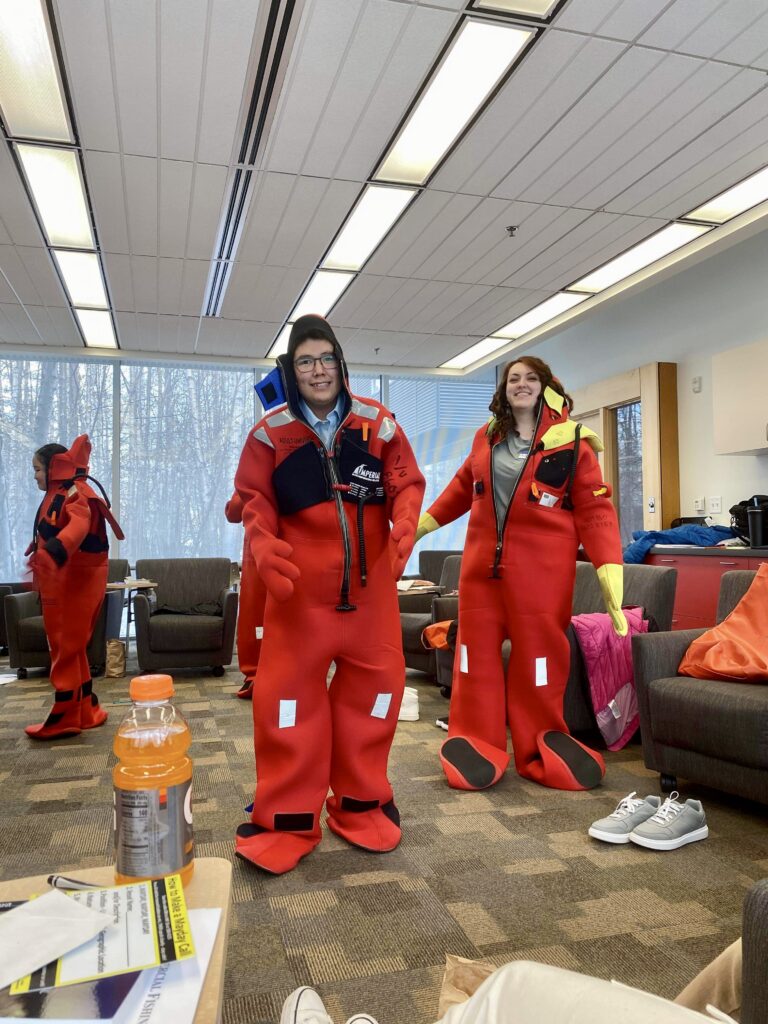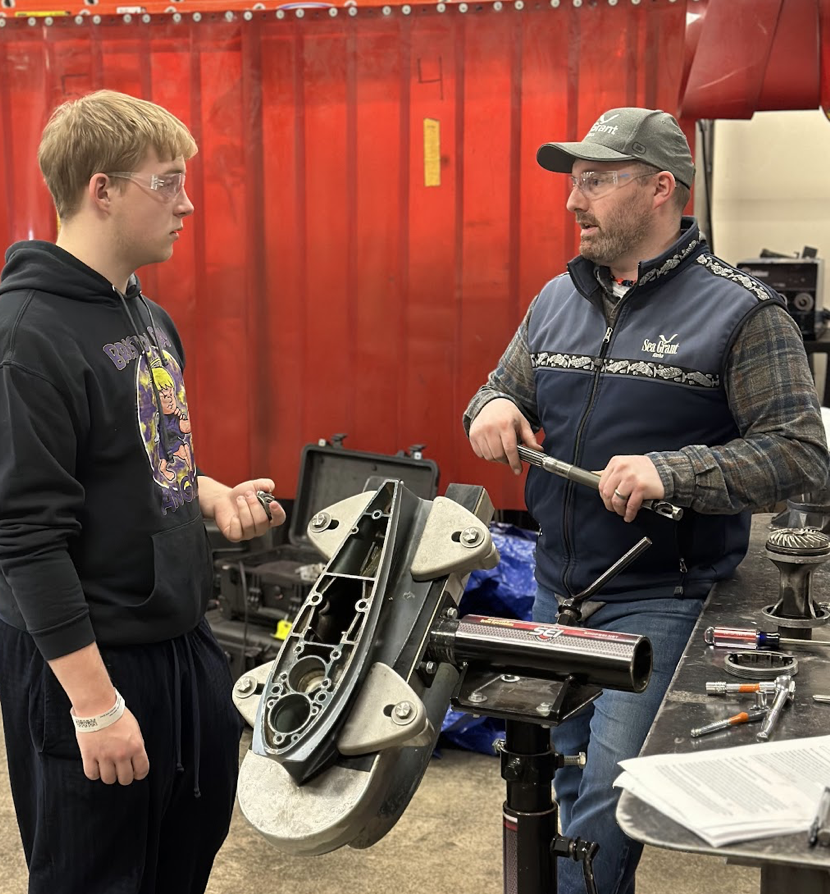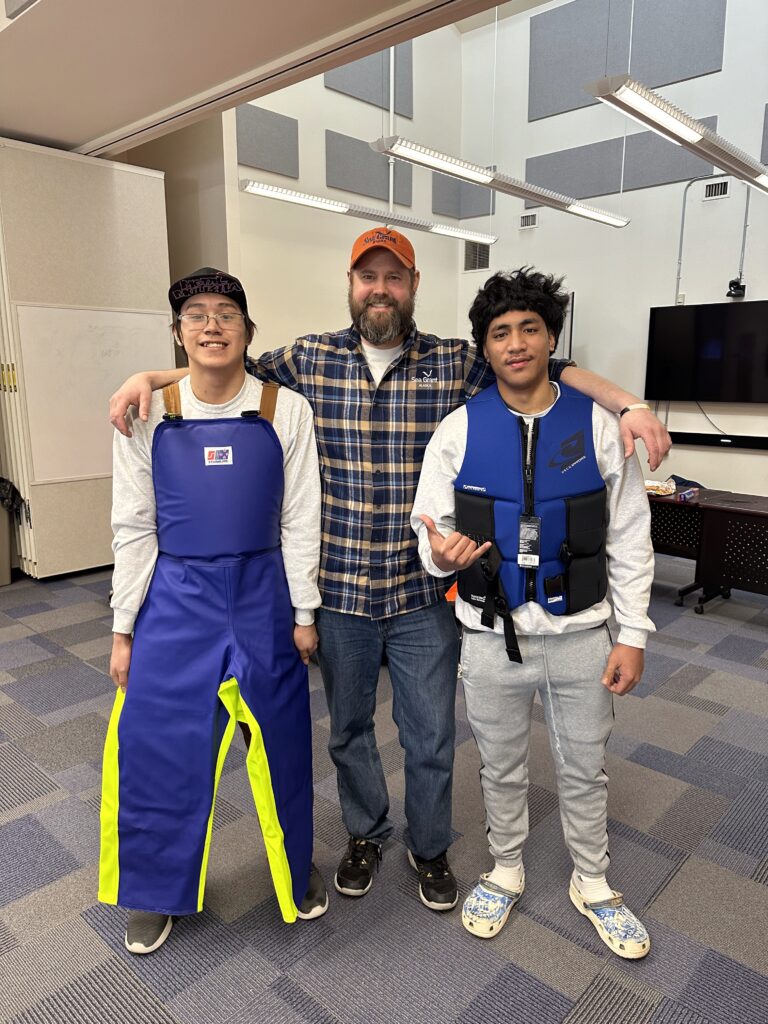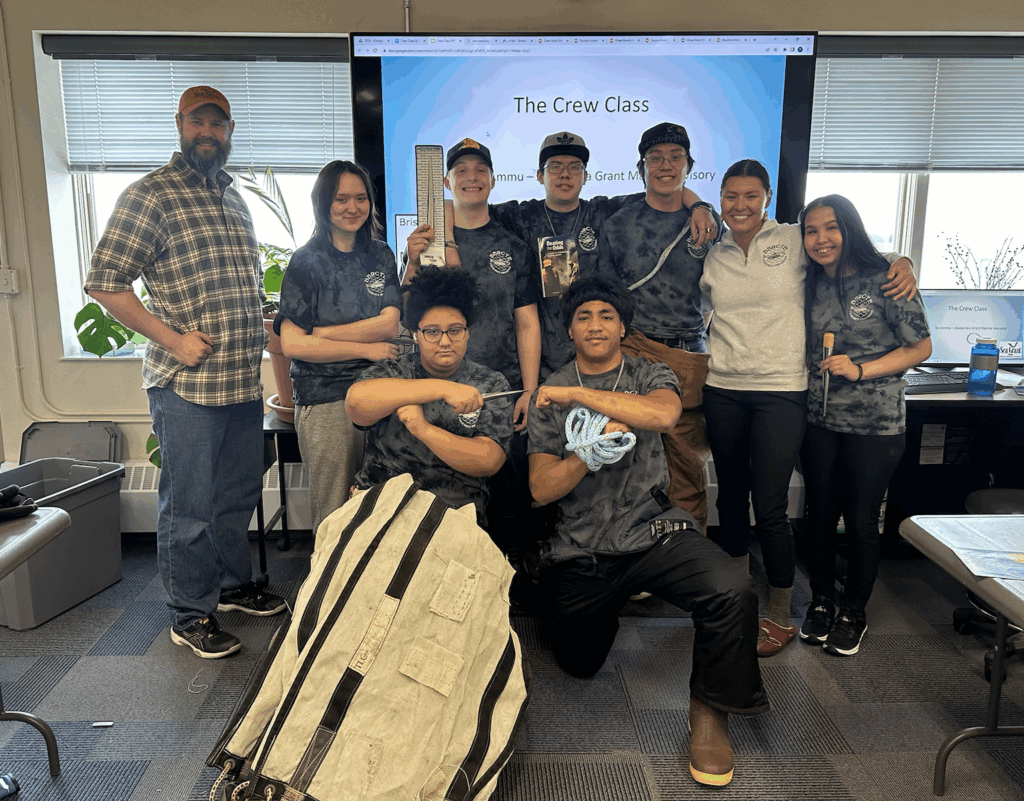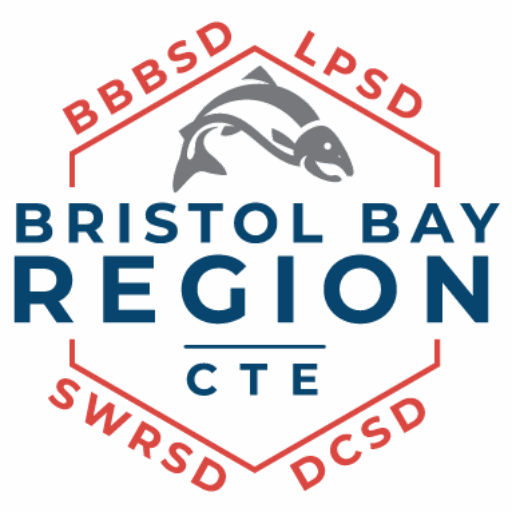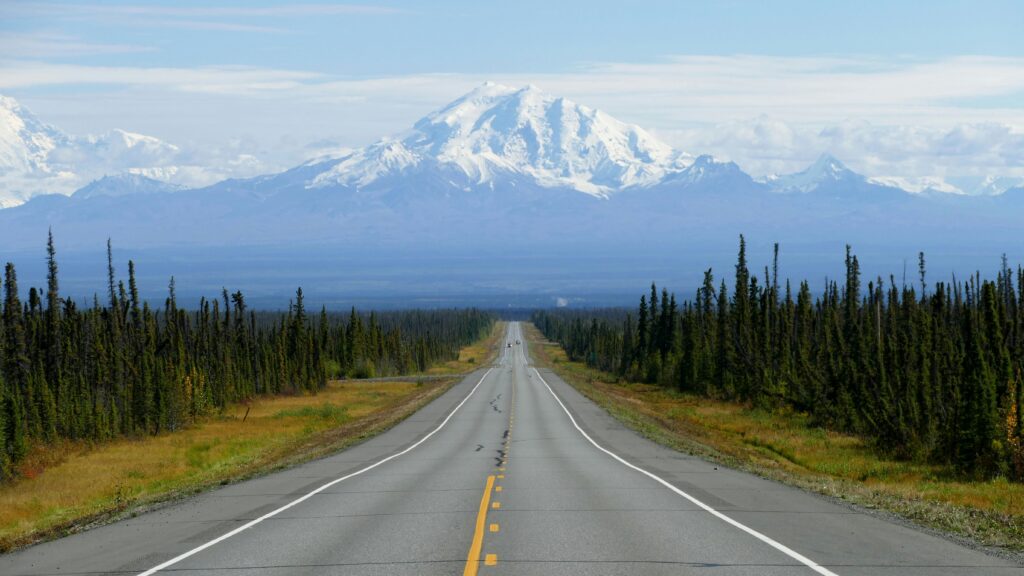Live in Alaska, learn from Alaska. In the Maritime & Fisheries program, you’ll dive into the region’s rich fishing traditions, marine safety, and sustainable resource management. From operating boats and tying knots to studying ecosystems and seafood processing, this program connects you to our waterways, culture, and economy. Set your course for a future on the water!
Fisheries Technician: This course will focus on preparing you to work as a Fisheries Technician I for the Alaska Department of Fish and Game. The course will be focused on developing skills needed to stay in a remote fish camp and assist in collecting fisheries data that will support salmon stock assessments. The bulk of this class will be spent at a camp on the Wood River and will include a focus on skiff operations and basic maintenance/troubleshooting, bear safety including shotgun training, and learning different methods of data collection, both through counting and with a seine. Your instructors will be biologists and scientists that will share their stories and experience in their fisheries science careers to give a better sense of these career opportunities. At the completion of the program you will be ready to apply for work as a Fisheries Technician.
Smoke Fish & Traditional Foods: This course will be taught by elders and culture bearers who hold the traditional knowledge of processing and smoking salmon. The students will learn safe food practices in relation to the preparation of traditional foods. Students will also learn the importance of food security and preservation while continuing to share traditional knowledge and skills. While the salmon smokes, we will learn other means of traditional food harvesting and processing, including: dry fish/jerky/candy, moose heart and tongue, tundra/forest harvesting, etc. By the 5th day, the students will distribute some jarred smoke fish product to elders in the community, while also having the opportunity to bring a case home for themselves. The week will end with a traditionally prepared potluck cooked by the students and advised by the elders. The students in the Fish Tech class will get to enjoy the fruits of this labor with their peers.
Intro to Outboard Systems: Introduction to Outboard Systems (ITOS) provides a fundamental understanding of the outboard systems, their applications and usage. Upon successful completion of this course, students will have the opportunity to earn Yamaha’s ‘Introduction to Outboard Systems (ITOS)’ certificate. This certificate is a pre-requisite for the Yamaha’s Maintenance Certificate Program (MCP). This BBRCTE version of ITOS includes hands-on laboratory work in addition to the lectures and online material.
Vessel Services & Maintenance I & II: Vessel Services and Maintenance will focus on preparing you to work as Bristol Bay Commercial Fisherman, though the skills taught are transferable beyond the Bay. This is a two part course. This makes up the first tier of the Skipper Apprenticeship Training Program. Four college credits are available to students who complete both sessions.
Vessel Services and Maintenance Part II teaches introduction to DC Electrical, Refrigeration, Hydraulic Basics, the Business of Fishing, and Marine First Aid. DC electrical gives the students experience wiring their own set up, utilizing a variety of wire connection options, installing bilge pumps, and installing lighting systems. The Refrigeration and Hydraulic Basics takes the students through Heat Theory, different portions of refrigeration systems, common troubleshooting techniques, and hydraulic maxims. The Business of Fish introduces students to owning and running a successful fishing business in regards to business planning, insurance, and tax preparation. And lastly, Marine First Aid is guided by AMSEA to identify common injuries on board fishing vessels and how to respond.
Intro to Bristol Bay Salmon: This class will cover three main topics in the Fisheries Intensive this year: Net Hanging and Mending, Introduction to Bristol Bay Salmon, and Vessel Stability. The Net Hanging and Mending section will be a hands on where you will measure, cut, and hang your very own 5 fathom subsistence salmon net as well as learn different mending techniques for fixing a more experienced net. The Introduction to Bristol Bay Salmon section will take you through the history, geography, management, and economic features of salmon and what makes Bristol Bay so unique to the rest of the world. The Vessel Stability section will teach you about basic physics when it comes to balancing a fishing boat and different types of weights (liquid, solid, free surface) will impact your boat differently.
Intro to Bristol Bay Fisheries: This class will cover three main topics in the Fisheries Intensive this year: Net Hanging and Mending, Introduction to Bristol Bay Salmon, and Vessel Stability. The Net Hanging and Mending section will be a hands-on experience including basic salmon net hanging and mending techniques. This section will have a greater focus on net mending skills, including mending techniques for fixing more damaged nets. The Introduction to Bristol Bay Salmon II section will take you through a range of topics related to Bristol Bay salmon and what makes Bristol Bay so unique including understanding ways that the science at Port Moller and in the Bristol Bay rivers and lakes can impact the fishery. The Tool & Shop Basics section will take you through the use of a range of tools needed to properly maintain and make emergency repairs on a fishing boat.
Commercial Set Net Camp: Join us for a unique, hands-on adventure where you’ll learn what it takes to be a commercial fishing crew member in Bristol Bay. You’ll be out on the water in a 22-foot aluminum skiff, fishing a net that’s 50 fathoms long—that’s the length of a football field! Experienced crew members will be right there with you, teaching you the ropes every step of the way. As a set netter, you’ll live on land in a comfortable building with your fellow crew members. When you’re not fishing, you’ll dive into practical skills like net mending, anchor rigging, and cooking hearty meals to fuel your day. By the end of the camp, you’ll have a solid understanding of what it’s like to work in the Bristol Bay fishery and real experience that could help you land a future job in the industry. Be ready to work hard, catch fish, learn valuable skills and have an unforgettable time! This class happens during the summer!
Commercial Fishing for Credit (CF4C) : Are you a commercial fishing crew member or looking to become crew this summer? Register for Commercial Fishing for Credit (CF4C) to receive .5 high school Vocational / Cultural / Fine Arts credit! CF4C includes set net, drift, and seine operations. This is a summer distance “class”. Submission of proof of participation is due by September 10th, 2025. Download or print the form below and return to your Career Guide by the deadline to receive a semester of credit for the hard work you did this summer. It can also be found here.
Fisheries Internship: Students will work with BBRCTE’s Internship Development Program Manager to be placed in an internship in the fisheries field. More info to come!
